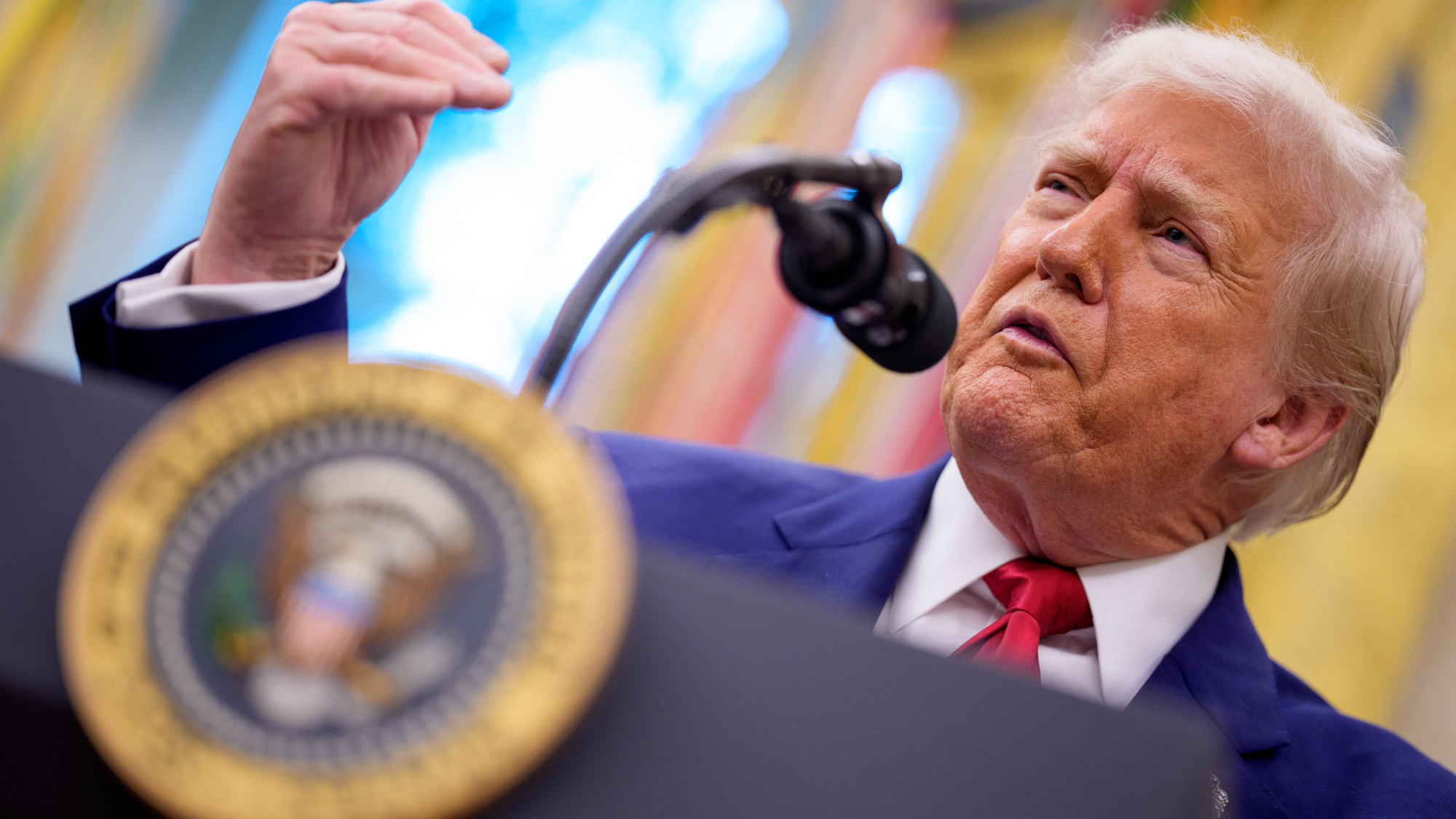Trump announces 100% semiconductor tariffs — 'There's no charge' for chips built in the U.S
This will affect nearly everything from cars to computers and more.

President Donald Trump has announced a 100% tariff on foreign-made semiconductors — a bid to force companies to build chips in the United States or order them from local fabs.
Trump made this announcement at the Oval Office after Apple’s Tim Cook promised an additional $100 billion in investments to avoid chip tariffs for iPhones, according to the Associated Press.
“We’ll be putting a tariff of approximately 100% on chips and semiconductors. But if you’re building in the United States of America, there’s no charge,” Trump said. When a reporter asked him how all of these announced investments would impact the American people, the president answered, “We have the biggest chip companies — the both of them — but we have the biggest in the world coming in. They’re going to Arizona and beyond. And in a short period of time, we’ll be [making] up to almost 50% of the chips, starting from nothing.”
TSMC has already started production at its Arizona fab; Apple, one of its first customers, expects to source over 19 billion chips from local manufacturing. The chip maker says demand for its capacity is so high that it’s already sold out through 2027, meaning companies that need chips will have to find another provider. Thankfully, Samsung’s new Texas fab is also nearing completion, with the company reportedly delaying its completion due to a lack of customers.
These massive new facilities were built under the Biden administration’s CHIPS and Science Act, jumpstarting the production of some of the most advanced semiconductors in the U.S. Nevertheless, Trump’s tariff threats have forced these companies and more to expand their investments, allowing him to secure about $1.5 trillion in commitments for building and expanding the chip making supply chain within America’s borders.
We’re still unsure if the output of these new fabs, and all of the existing ones, would be enough to deliver what the American industry needs, however. Aside from the massive demand brought about by the seismic AI infrastructure buildout being done by tech giants, nearly every other everyday item we take for granted now requires chips, from cars and appliances to light bulbs and switches.
If companies are forced to import chips at elevated rates, the American consumer will end up paying more, driving inflation and reducing demand. We also need to see more details about how the tariff exemptions will work. At the moment, the president says that he won’t put a tariff on companies that are buying (or building) locally-made semiconductors and importing them as well — but how many chips should a company buy and use for it to be exempted from the import tax?
Get Tom's Hardware's best news and in-depth reviews, straight to your inbox.
Follow Tom's Hardware on Google News to get our up-to-date news, analysis, and reviews in your feeds. Make sure to click the Follow button.

Jowi Morales is a tech enthusiast with years of experience working in the industry. He’s been writing with several tech publications since 2021, where he’s been interested in tech hardware and consumer electronics.